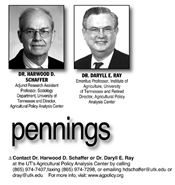What Is This Thing Called Comparative Advantage And How Can It Be Applied?

In 1817 David Ricardo wrote a book, “On the Principles of Political Economy and Taxation,” that included a chapter in which he introduced the concept of comparative advantage. He did this by using a two country/two goods analysis in which he posited that one country Portugal had an absolute advantage over England in producing both wine and cloth. He also supposed that England had to spend relatively more hours producing wine than cloth while in Portugal the gap was smaller.
Thus, England had a comparative advantage in producing cloth relative to wine.
Using this example, Ricardo argued that it was in the interest of both countries for Portugal to exchange some of its wine for England’s cloth and both countries would be better off; we’ll skip the mathematic calculations that Ricardo made. In this case, he concluded, both countries could end up with more of both goods through trade than they would have in the absence of trade. Thus, the rationale for trade even when one country has the absolute advantage of producing both goods.
Since Ricardo, trade economists have spent lifetimes trying to figure out how Ricardo’s idea works out in the real world. Average citizens express their opinions about free trade negotiations to their legislators in Washington, DC.
In this column we want to step back from these arguments and look at comparative advantage as it applies in a more mundane situation: the office or workplace. As the Director of the Agricultural Policy Analysis Center before he retired, Daryll hired staff for specific tasks needed to reach the goals of the Center. But once the person was hired, Daryll sat back and observed each staff person and where they had a comparative (or absolute) advantage over other staff members in accomplishing certain tasks. He then allowed staff members to concentrate on those areas where they had an advantage.
The result made the Center a more vibrant place that accomplished more than he had imagined when he established it. In the process the staff brought significant funds into the Center and 2 staff members earned MS degrees while 3 earned their PhD, including Harwood who earned a second Masters degree and a PhD.
Daryll looked at the department he was a member of in the same way.
The Dean expected all faculty members to produce a minimum number of papers, be excellent teachers, and provide service to the department and university community. While the Dean had this uniform set of expectations for all department members, Daryll saw it differently.
In the time that one member of the faculty could publish 7 journal articles in highly rated journals another slogs it out trying to produce the minimum three articles. Some are great teachers, while others, students are quick to report, have more modest teaching skills. Some achieve great things in the area of department and university service while others dread the meetings. And there are still others who are good at two or even all three activities but, relative to their colleagues, have a “comparative advantage” in one of them.
From Daryll’s perspective, it would have been better to look at the department as the unit of analysis with each of the tasks set at the department level and the tasks divided among the members according to their interests and abilities. Working in that way Daryll felt that the department could have achieved more than it did in a system where everyone was expected to do everything equally well.
Growing up, Harwood would visit his grandfather – his namesake – and grandmother. Young Harwood quickly figured out that when something broke, he went to grandma to fix it because grandpa didn’t know one end of the screwdriver from the other – if he knew, it is clear he didn’t care. Grandpa was great at earning a living and knowing where the finest dining establishments were in a three-state area, but he was at a loss when something needed to be fixed, that was grandma’s skill.
In retirement, Harwood works in a retail setting (he would go stir- crazy staying at home) where everyone is expected to do many of the tasks at relatively equal speeds. But this is not the way it is, some are better at sanitation while others can make your eyes blur, they are so efficient at putting products on the shelves, and so it is with the variety of tasks it takes to make the department serve its customers in a quality manner. We believe that more can be accomplished when folks are allowed to focus their work in areas where they have a comparative advantage, filling in when necessary on other tasks that need to be done. Changes in staffing over time may change who has comparative advantage in certain tasks, requiring a shift in who does what most of the time.
Farmers use the principle of comparative advantage in assigning or scheduling tasks to “themselves” and to others. It is our observation that it serves them very well. The rest of us could take a lesson from that. ∆
DR. HARWOOD D. SCHAFFER: Adjunct Research Assistant Professor, Sociology Department, University of Tennessee and Director, Agricultural Policy Analysis Center
DR. DARYLL E. RAY: Emeritus Professor, Institute of Agriculture, University of Tennessee and Retired Director, Agricultural Policy Analysis Center